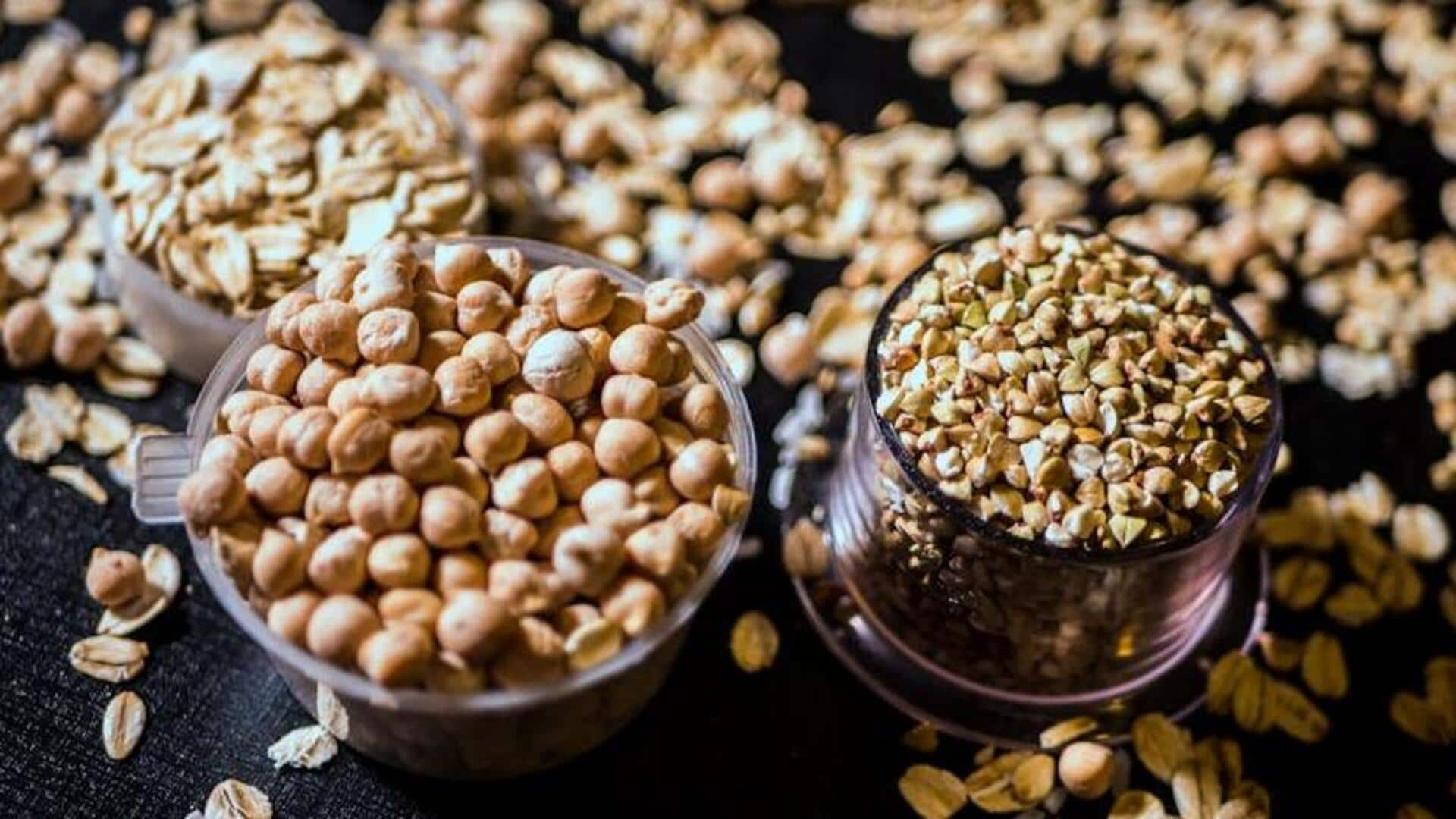
Explore Rajasthan's water-saving grains
What's the story
Rajasthan, a state known for its arid climate and minimal rainfall, has developed unique agricultural practices to cultivate grains that require less water.
These indigenous grains not only support the local ecosystem but also offer numerous health benefits.
Let's explore some of these remarkable grains that are making a difference in both the kitchen and the environment.
Ingredient 1
Pearl millet: The hardy crop
Pearl millet, locally known as bajra, is a staple grain in Rajasthan.
It thrives in harsh conditions where other crops might fail.
Rich in protein, fiber, and essential minerals like magnesium, calcium, and manganese, bajra supports heart health and aids digestion.
Its versatility allows it to be used in various dishes, from rotis to porridges, making it a vital ingredient in Rajasthani cuisine.
Ingredient 2
Sorghum: The nutrient powerhouse
Sorghum or jowar is another drought-resistant grain widely cultivated across Rajasthan.
It's packed with nutrients such as iron, protein, and dietary fiber while being gluten-free.
Sorghum helps manage cholesterol levels and is beneficial for individuals with diabetes due to its low glycemic index.
It can be used to make traditional breads or added to soups for an extra nutritional punch.
Dish 1
Cluster beans: The water-saver vegetable
Not all heroes of the Rajasthani diet come in grain form; cluster beans (gavar) are a testament to this.
Requiring very little water to grow, these beans are high in fiber, which aids digestion and helps maintain blood sugar levels.
They're commonly cooked with spices and herbs to create flavorful curries that complement the staple grains of the region.
Ingredient 3
Moth bean: The desert dal
The moth bean, or moth, thrives in Rajasthan's dry climate. High in protein, it is a great vegetarian meat substitute. It also contains potassium, which manages blood pressure.
Moth can be sprouted to enhance its nutrition or cooked into dals.
These grains and vegetables demonstrate Rajasthani agriculture's ingenuity and offer a sustainable farming model globally. They support healthier lives and environmental conservation.